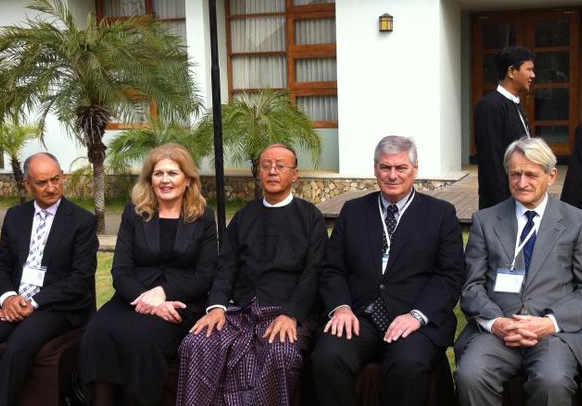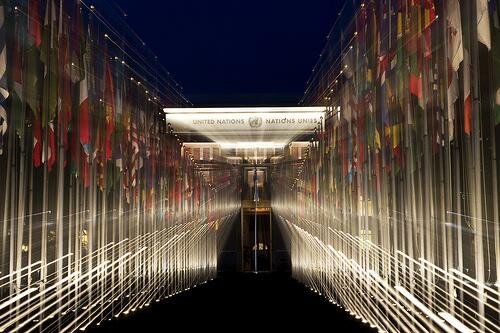
Apr 9, 2015 | News
Among the victims of a gun attack today at the Palace of Justice of Milan, according to press reports, were Judge Fernando Ciampi and lawyer Lorenzo Alberto Claris Appiani.
Press reports state that the person who opened fire in the Palace of Justice of Milan, killing three persons and injuring several others, was a defendant in a case.
The ICJ calls on relevant authorities immediately to launch a thorough inquiry into the system of security at the Palace of Justice, for judges, lawyers, and prosecutors, as well as witnesses and parties to cases, employees, and others present in the buildings.
The ICJ recalls that the State has a duty under international law to ensure protection for members of the judiciary and others who may be at risk of such attacks.

Feb 5, 2015 | News
Myanmar must follow through on promising efforts to improve the independence and accountability of its legal system, and particularly its judiciary, said the ICJ today at the launch of one of its landmark book in Yangon.
The ICJ launched today the Myanmar language version of its Practitioners’ Guide to the Independence and Accountability of Judges, Lawyers and Prosecutors.
“The judiciary in Myanmar has taken important steps towards asserting its independence from the other branches of government, but we heard repeatedly from the judiciary that they still face significant obstacles in this regard,” said Wilder Tayler, ICJ’s Secretary-General.
The book launch wrapped a series of discussions regarding judicial ethics and the rule of law with the Supreme Court of the Union of Myanmar, as well as with the parliamentary Committee on Rule of Law and Tranquility.
The ICJ’s Practitioners’ Guide n°1 is the first of its kind to be published in the Myanmar language providing detailed references to international and comparative standards on the independence and accountability of judges and lawyers.
“The Supreme Court emphasized its belief that an independent judiciary plays a key role in ensuring access to justice and the protection of human rights, but with independence must come accountability,” Tayler added. “The Myanmar judiciary must be accountable not just in deciding cases according to the law and facts, but also as a separate and equal branch of the government, and ultimately, to the people of Myanmar.”
In the course of its discussions at an earlier workshop in Naypyidaw, the ICJ was repeatedly told that the judiciary is trying to address challenges to its institutional independence, as well as the independence of individual judges.
Corruption, which remains a serious problem throughout all social sectors, including the judiciary, interferes with the judiciary’s ability to provide a remedy for human rights violations and bringing perpetrators to justice.
Undue influence by powerful political and economic actors continues to hamper the push for greater trust and credibility for the judiciary among the general public.
“As we heard at the workshop, at all levels of the system, from the Supreme Court to the Townships, a lack of resources, poor working conditions and low remunerations contribute to an environment where the temptations of corruption, or outside pressure, undermine judicial independence and impartiality,” said Tayler.
“We also heard strong support from all levels of the judiciary for establishing a judicial code of conduct that incorporates international standards and best practices in response to the demands of the people of Myanmar for more rule of law. Producing such a code, and implementing it, would go a long way toward increasing the judiciary’s independence and accountability,” he added.
Wilder Tayler was joined by a senior panel of international legal experts on judicial integrity, including three ICJ Commissioners: Justice Azhar Cachalia of the Supreme Court of Appeals of South Africa, Justice Radmila Dicic of the Supreme Court of Serbia, and retired Justice Ketil Lund of the Supreme Court of Norway.

Jan 19, 2015 | News
The investigation into the reported death of Argentinian prosecutor Alberto Nisman must be thorough, prompt and impartial, the ICJ said today.

Sep 24, 2014 | News
The ICJ expressed concern at the promulgation of a constitutional amendment that empowers the Bangladesh Parliament to impeach judges of the Supreme Court.
The ICJ urges the Government to ensure the impeachment provision meets its obligations under the International Covenant on Civil and Political Rights and international standards on the independence of the judiciary.
“Parliament must prescribe adequate safeguards to ensure the newly enacted impeachment provision meets international standards for protecting the independence of the judiciary and the right to a fair trial,” said Sam Zarifi, ICJ’s Director for Asia and the Pacific. “Without such safeguards, the looming fear of arbitrary and politically motivated impeachment would create an environment in which judges would be unable to exercise their judicial functions independently and impartially, especially in cases involving the Government.”
On 22 September 2014, President Abdul Hameed gave his assent to the 16th constitutional amendment, which was passed unanimously by the Bangladeshi Parliament on 17 September 2014.
The amendment empowers Parliament to impeach judges of the Supreme Court on the grounds of “proven misbehavior or incapacity” by passing a resolution supported by at least a two-third majority of parliamentarians.
To exercise this power, Parliament has to first pass a law to regulate the procedure in relation to investigation and proof of the misbehavior or incapacity of a judge that would lead to an impeachment.
International standards on the independence of the judiciary, including the UN Basic Principles on the Independence of the Judiciary, the Commonwealth Principles on the Accountability of and the Relationship between the Three branches of Government, and the Beijing Statement of Principles of the Independence of the Judiciary, stipulate that judges shall be subject to suspension or removal only for “reasons of incapacity or behavior that renders them unfit to discharge their duties”.
The phrase “proven misbehavior or incapacity” in the Bangladeshi amendment will have to be interpreted and applied in line with this relatively high threshold.
“Impeachment of judges must be an exceptional measure, reserved for cases of gross misconduct,” said Zarifi. “Unless Parliament takes great care to ensure the law regulating and clarifying the impeachment procedure follows international law and standards on the removal of judges, the constitutional amendment can only be interpreted as an assault on the independence of the judiciary.”
Any removal proceedings must meet international standards on fair trial and due process.
A judge at risk of being disciplined or removed must be accorded the right to be fully informed of the charges; the right to be represented at the hearing by council of choice; the right to make a full defense; and the right to be judged by an independent and impartial tribunal.
“The actions that Parliament might take under the impeachment amendment are particularly worrying given the Awami League Government’s recent record of passing a series of regressive laws and policies relating to human rights,” added Zarifi. “After clamping down on the operation of civil society groups and restricting freedom of expression of the media and human rights defenders, it appears that the Government is now looking to target the judiciary.”
An independent and impartial judiciary is central to the protection of human rights and the rule of law.
The ICJ therefore urges the Bangladesh Parliament to safeguard judicial independence by ensuring that the laws governing the impeachment procedure meet international law and standards on the independence of the judiciary and the right to a fair trial.
Contact:
Sam Zarifi, ICJ Asia Pacific Regional Director (Bangkok), t: +66 807819002; e: sam.zarifi(a)icj.org
Reema Omer, ICJ International Legal Adviser (London), t: +44 7889565691; e: reema.omer(a)icj.org









